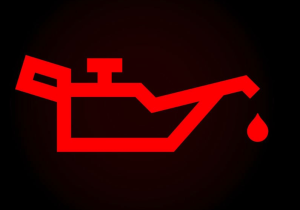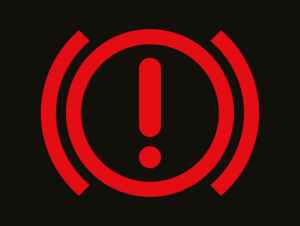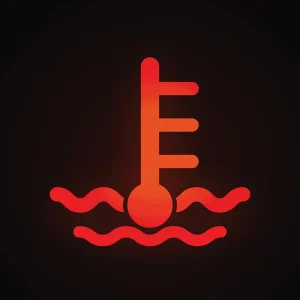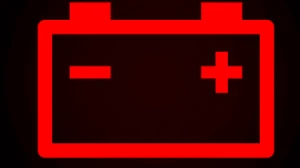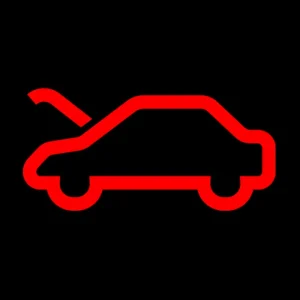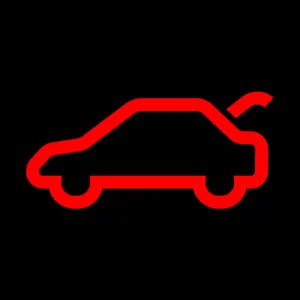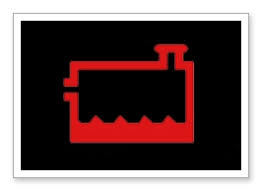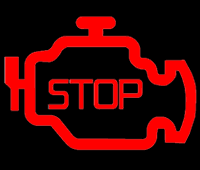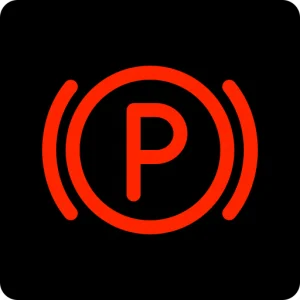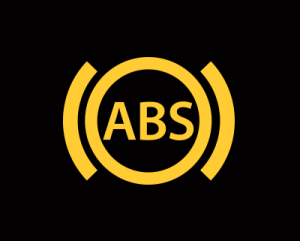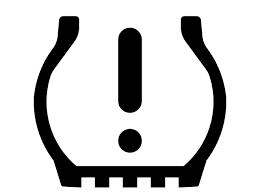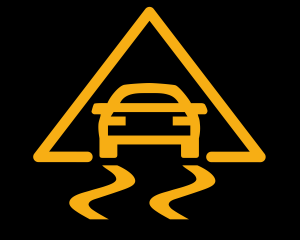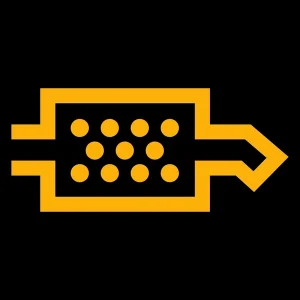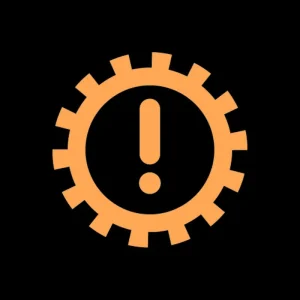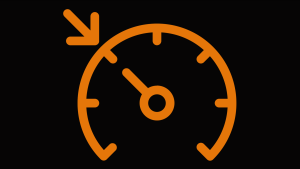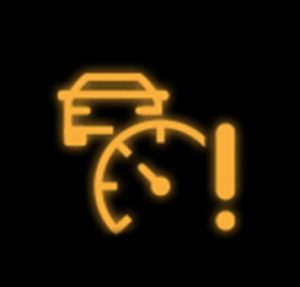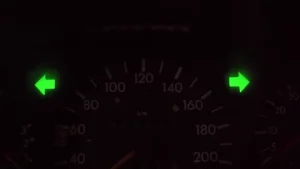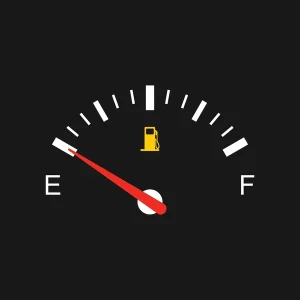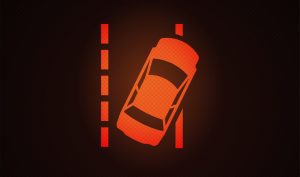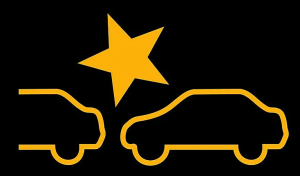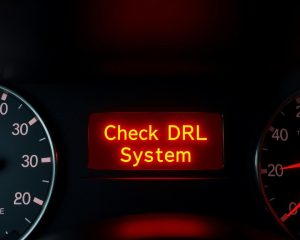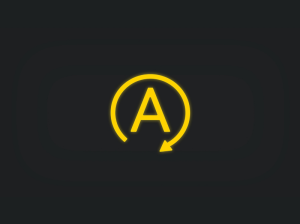Understanding dashboard warning lights in your Vauxhall Combo is essential for maintaining vehicle safety and preventing breakdowns.
These lights alert you to potential issues, from critical problems requiring immediate attention to routine system activations, helping you avoid costly repairs and ensure safe driving. By recognizing and responding to them promptly, you can keep your vehicle in optimal condition and protect yourself and others on the road.
Quick Navigation
Red Warning Lights (Stop Immediately)
Engine Oil Pressure
This light indicates low oil pressure, which could lead to engine damage from lack of lubrication. Possible causes include low oil levels or a faulty pump. Stop the vehicle immediately, check the oil level, and add oil if needed; do not drive until resolved.
Brake System Alert
Signals a problem with the brakes, such as low brake fluid or hydraulic failure. It may be caused by leaks or worn components. Pull over safely, inspect fluid levels, and contact a mechanic before driving further.
Engine Coolant Temperature
Warns of overheating engine coolant, potentially due to low fluid, a faulty thermostat, or radiator issues. Stop the car, let it cool, check coolant levels, and seek professional help to avoid engine damage.
Charging System Warning
Indicates a fault in the battery or alternator system, like a failing battery or loose connections. The vehicle may lose power soon. Stop driving, check connections, and have the system tested at a service center.
Power Steering Fault
This light means there’s an issue with the power steering, making steering difficult. Causes include low fluid or electrical faults. Stop immediately, check fluid levels, and visit a mechanic as steering could fail.
Airbag and Belt Tensioners System
Alerts to a malfunction in the airbag or seatbelt pretensioner system, possibly from sensor failure or wiring issues. Safety features may not work in a crash. Stop and have it inspected by a professional right away.
Driver’s Seat Belt Reminder
Flashes if the driver’s seatbelt is not fastened while driving. It’s a safety prompt to buckle up. Fasten the seatbelt immediately to comply and ensure protection.
Door Open Warning
Shows when a door is not fully closed, risking items falling out or accidents. Could be due to faulty latches. Stop, close all doors securely, and check for damage.
Bonnet Open
Warns that the bonnet (hood) is not latched properly, which could open while driving. Stop safely, secure the bonnet, and ensure it’s locked before continuing.
Tailgate/Boot Open
Signals the tailgate or boot is ajar, potentially causing loss of cargo. Pull over, close it firmly, and verify it’s secure to prevent hazards.
Low Coolant Level
Indicates insufficient engine coolant, leading to overheating. Causes include leaks or evaporation. Stop the vehicle, add coolant if safe, and get leaks repaired promptly.
Stop Engine Warning
A critical alert for severe engine issues, like major faults detected by sensors. Stop immediately, turn off the engine, and call for roadside assistance or a tow.
Manual Parking Brake/Clutch Fluid Level
Warns of low clutch or brake fluid, affecting braking or gear shifting. Check levels, top up if needed, and have the system inspected to avoid failure.
Yellow/Amber Warning Lights (Action Required Soon)
Antilock Brake System (ABS) Warning
Indicates a fault in the ABS, which helps prevent wheel lockup during braking. Brakes still work but without anti-lock. Have it checked soon at a service center to restore full functionality.
Brake Pads Worn
Alerts that brake pads are thinning and need replacement soon. Caused by normal wear. Schedule a service to replace pads and avoid reduced braking efficiency.
Tyre Pressure Monitoring
Warns of low tyre pressure in one or more tyres, affecting handling and fuel efficiency. Check and inflate tyres to recommended levels; inspect for punctures.
Electronic Stability Control (ESC) Fault
Signals a problem with the stability system that helps control skids. It may be deactivated or faulty. Drive carefully and get it repaired soon for better vehicle control.
Glow Plug (Diesel Pre-Heat)
For diesel engines, this light shows the glow plugs are heating the combustion chamber. Wait for it to turn off before starting; if it stays on, check for faults.
Diesel Particulate Filter (DPF)
Indicates the DPF is clogged with soot and needs cleaning. Drive at higher speeds to regenerate it, or visit a service center if it persists to avoid engine issues.
Transmission Warning
Warns of issues in the automatic transmission, like overheating or sensor faults. Shift carefully and have it diagnosed soon to prevent damage.
Low Washer Fluid
Means the windscreen washer fluid is low. Refill the reservoir soon to maintain clear visibility during driving.
Speed Limiter On
Confirms the speed limiter is active, restricting maximum speed. Adjust or deactivate if not needed, but check settings for safe operation.
Descent Control System (DCS) Fault
Indicates a problem with the system that aids downhill control. It won’t function properly. Have it serviced soon for off-road or steep driving safety.
Engine/Transmission Electronics Warning
Alerts to electronic faults in the engine or transmission. Could be sensor issues. Schedule a diagnostic check to identify and fix the problem.
Immobiliser System Fault
Flashes for issues with the vehicle’s security system, preventing starting. Try another key; if unresolved, contact a service center.
Air Suspension Fault
Warns of problems in the air suspension system, affecting ride height. Inspect for leaks and service promptly for stable handling.
Green Warning Lights (Information Only)
Cruise Control Activated
Shows cruise control is on and maintaining a set speed. No action needed; it’s for your awareness during use.
Front Fog Lights On
Confirms front fog lights are active for better visibility in poor conditions. Turn off when not needed to save energy.
Sidelights On
Indicates sidelights (parking lights) are illuminated. It’s informational; ensure they’re off when parked to preserve battery.
Headlights On
Signals that headlights are active. No action required, but check they’re appropriate for conditions.
High Beam Assist
Shows the automatic high beam system is engaged, switching beams as needed. It’s working normally; monitor for manual overrides.
Turn Signal/Hazard Warning
Flashes when indicators or hazards are in use. Confirms operation; no further action unless it fails.
Fuel Economy Mode Switched On
Indicates eco mode is active, optimizing fuel efficiency. Drive as usual; it’s for information on mode status.
Lane Departure Switched On
Confirms the lane departure warning system is active. It alerts if you drift lanes; no action unless you want to deactivate.
Vehicle Detected Ahead
Shows the system has detected a vehicle in front, often for adaptive cruise. It’s informational for awareness.
Daytime Running Lights On
Indicates daytime running lights are active for visibility. No action needed; they’re automatic.
Upshift Recommended
Suggests shifting to a higher gear for better efficiency. Follow if manual; it’s a helpful prompt.
Automatic Restart (Stop-Start System)
Flashes when the engine auto-stops and is ready to restart. It’s normal for fuel-saving systems; no intervention required.
When looking at Vauxhall, make sure to check out our guides on models like the 1, 2, 3, and 4. Understanding dashboard warning lights is essential. Our expert reviews break down what each light means, highlighting common alerts for these models and what they could signal about underlying issues, so you’re never left guessing behind the wheel.

